Vaginal health issues affect most women at some point in their lives, and become more common during perimenopause and beyond. Whether it’s vaginal dryness, pelvic floor weakness, recurrent infections such as thrush or cystitis, or painful sex, many women still don’t contact their GP or practice nurse out of fear of embarrassment.
Dr Anita Mitra is an NHS Gynaecologist and author of The Gynae Geek: Your No-Nonsense Guide to Down-There Healthcare.
“I don’t think that we are brought up to talk about these things, so it becomes a taboo,” she says.
“I also find that women struggle to find the right words to describe what is wrong, or where exactly the problem is. But equally I don’t expect anyone to use any kind of fancy language. Just describe things in your own way and know that we’re not judging you.”
A personal note
In my role as a personal trainer to women over 50, I have seen and heard about a wide range of vaginal issues that affect women’s everyday lives. Often, when discussing things with a client, there’s almost a fear of admitting you need to wear pads in the gym to absorb leaks, or that you don’t enjoy a healthy sex life anymore because of dryness. But I can say with certainty that when clients are honest with me, I am able to help them by signposting them to the right resources or help and adapting their workouts to suit.
On a personal level, at 44 years of age, I have found myself battling recurrent thrush for months. It’s uncomfortable and at times, downright painful. I have been dissatisfied with the care I received from one doctor, so I went to see a female doctor at the sexual health clinic, who was much more useful.
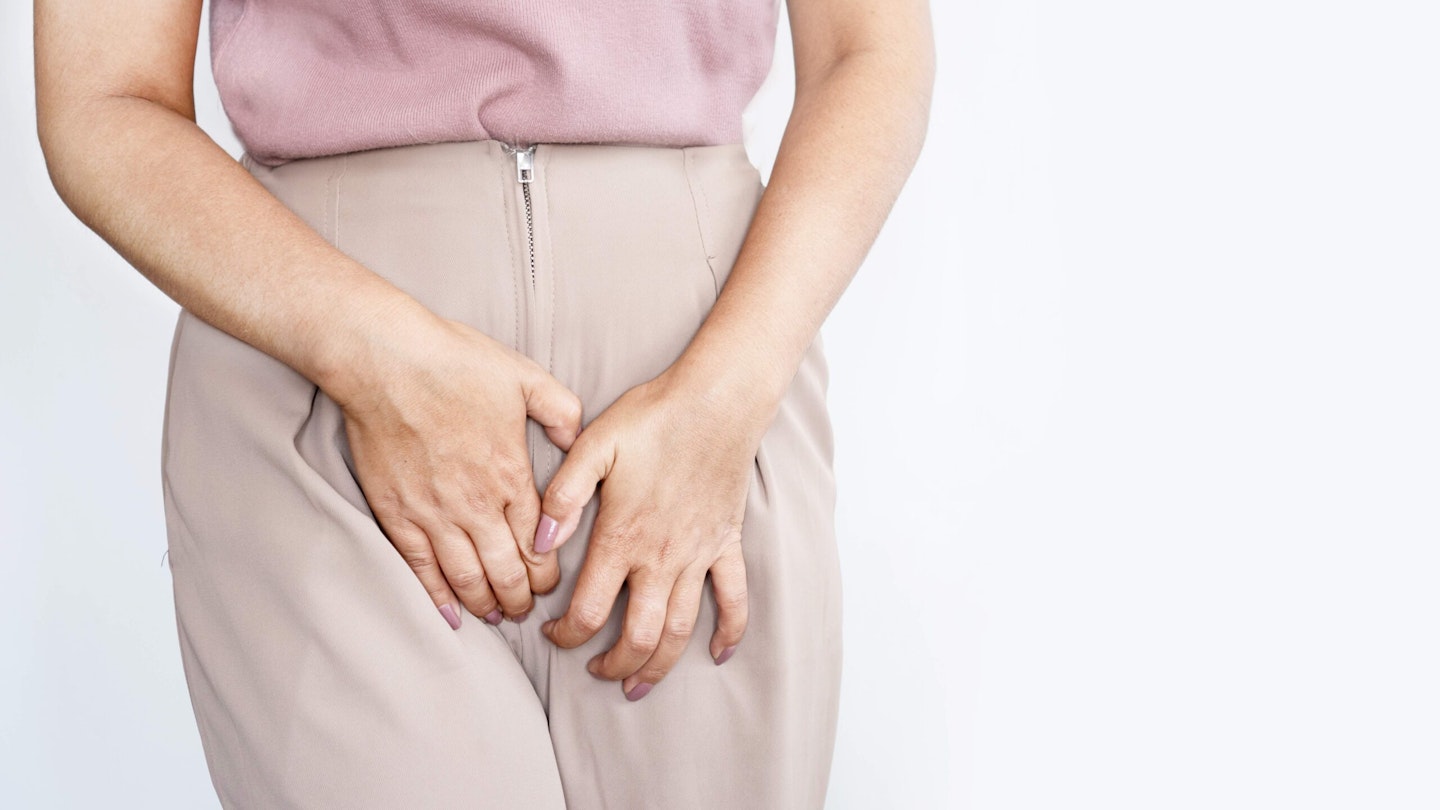
My advice to women is this: don’t be afraid to speak up! No one is going to advocate for you, so you need to do it yourself. Life is too short to spend our best years feeling uncomfortable and embarrassed. I was relentless but I got the help I needed to sort my issues and I’m glad I did.
Vaginal health issues are common and below, we’re taking a look at some of the problems women may face and what to do about them. I have also recommended some products that I, along with other women I know, have found useful in tackling these issues. As always though, please consult your doctor or health care provider before starting something new, especially if you have any other health issues.
Vaginal dryness
A study in the Journal of Menopause revealed that 50 per cent of women suffering from vaginal dryness won’t go to their GP – but it makes sense to speak out as it could be caused by a myriad of issues. Vaginal dryness is common in perimenopause as the vagina walls get thinner, so natural lubrication lessens.
“Vaginal dryness can be treated using topical oestrogens from your doctor or vaginal moisturisers and lubricants,” says Dr Mitra.
“A lot of women think it’s something they have to put up with; they tend to mention it off-hand while talking about something else.
“I’d prefer women to get a GP check-up rather than self-treat, especially if there’s a lot of itching, irritation, dry or cracked areas or everything feels very sore. There are skin disorders such as lichen sclerosus that are common and require different types of treatment but should not be ignored.”
A client of mine has been experiencing vaginal dryness. She's been using the Balance Activ Moisture gel with great success.
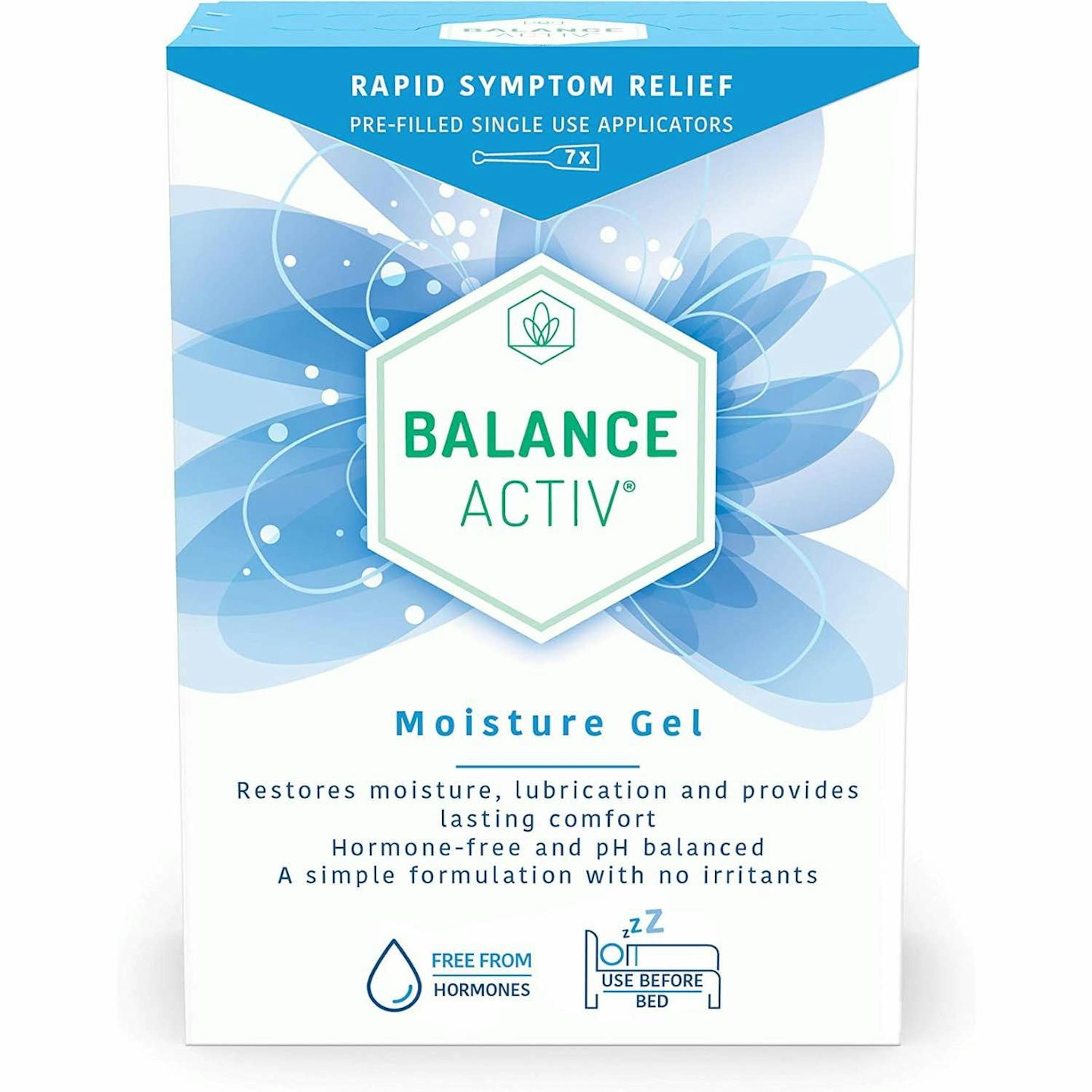 Amazon
Amazon The Balance Activ Vaginal moisturiser consists of 7, easy-to use pre-filled applicators of moisture gel that you use overnight for a week to ease vaginal dryness. This can help provide relief from itching, dryness and discomfort. Relief is quick to be felt and can last up to 9 days.
Our review: You pop one of these little tubes of gel in right before bed - I did it when lying in bed so gravity didn't take hold! They're easy to use, and there's no discomfort putting them in. The day after using the first one, I really felt a difference. I didn't have the awful discomfort I've been feeling when sitting or walking. By the end of the course I felt good enough to have sex again, which was such a relief as I was worrying my sex life was over at 42!
I wish it was a more permanent solution, but I fear that might not happen until my body is ready for HRT. I used these for a week, and felt great, but after another week the dryness was coming back. So, I'd say they're great, amazing, even, but not a permanent solution - although that's not an issue with the product itself.
Pelvic floor problems
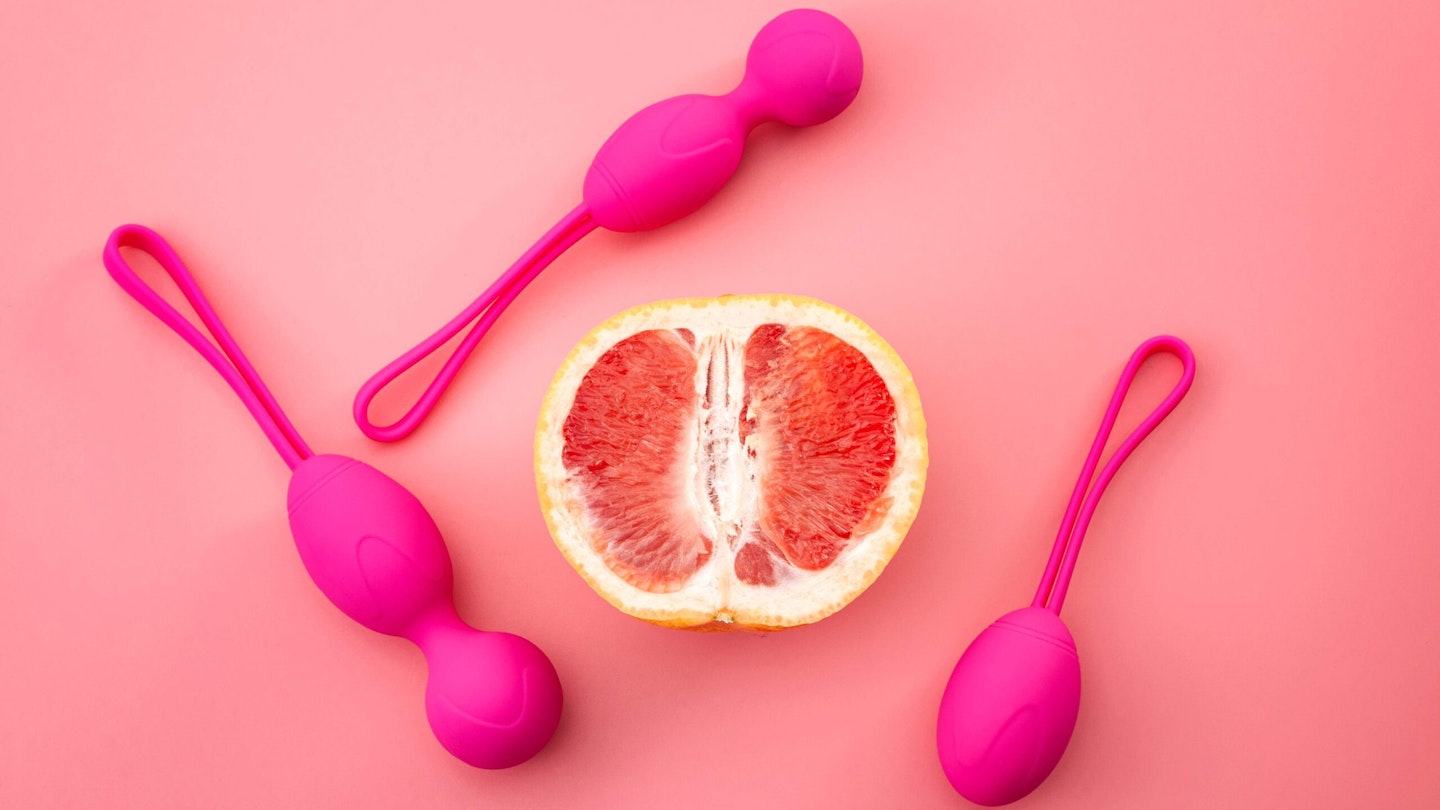
One in three of us suffer from bladder weakness – whether or not that applies to you, it’s worth keeping up your pelvic floor exercises to prevent it either happening or getting worse. Practise gently contracting the muscles you would use to stop the flow of urine 10-15 times, or for more detailed advice and reminders, consider downloading the NHS app Squeezy.
My guide to the best pelvic floor exercises will help you get started and, if you keep them up, you’ll really notice a difference. I have also rounded up the best pelvic floor trainers – nifty devices you can buy to help you really strengthen those muscles.
“Symptoms of incontinence or prolapse can begin to become more apparent after the menopause due to changes in the structure around the vagina,” says Dr Mitra. “If you leak urine, or you have a feeling of pressure like something coming down, you should also speak to your doctor about how this can be managed because again, while it’s common, it’s not something that you just have to put up with.”
The best product I’ve found to help with pelvic floor issues is the Issviva. It’s pricey but, in my opinion and that of our tester, well worth the investment. It uses light technology to rejuvenate the vaginal lining, helping your pelvic floor muscles as well as reducing dryness and improving bladder function.
The Joylux vaginal rejuvenation device, from Issviva, claims to offer 91% less dryness, 95% more tightness, 90% better bladder control, and 89% less pain with intercourse. All these issues are very common in perimenopausal women, or those post-menopause too. Bladder weakness is a particular concern.
The device works by using light technology, vibration and heat to stimulate collagen and elastin production, as well as stimulating blood flow to the area.
Our review: "The packaging and product were really nicely presented, and it was very easy to set up. The quick start guide was brilliant but you also had the instruction manual before hand to read through the finer details and refer back to if needed.
It was comfy to use so no issues there, which was good. My only surprise was it got quite warm!
I’ve been using it every day for 10 minutes. After the first week I felt the muscles being tighter whilst in use, and after two weeks of use I did feel an improvement particularly if I needed the toilet desperately, I felt I was holding everything in much better.
I will definitely keep using this product as I believe long term use will give the greatest improvement."
Thrush
Anyone can get thrush – which causes itching, soreness or an odourless discharge – but if you have a lowered immune system or diabetes you could be more prone. Pop to your chemist for an over-the-counter remedy.
This is what has been affecting me recently – and I didn’t realise it is more common during perimenopause as the vagina becomes dryer. I experienced terrible itching, but no pain when urinating or having sex, so I didn’t think it was thrush. I was initially dismissed and told to stop using soap (more on that in a moment), but eventually I got a proper swab done at the doctor. When the diagnosis of thrush came through, I used the Canesten pessary and cream detailed below, and it’s finally gone!
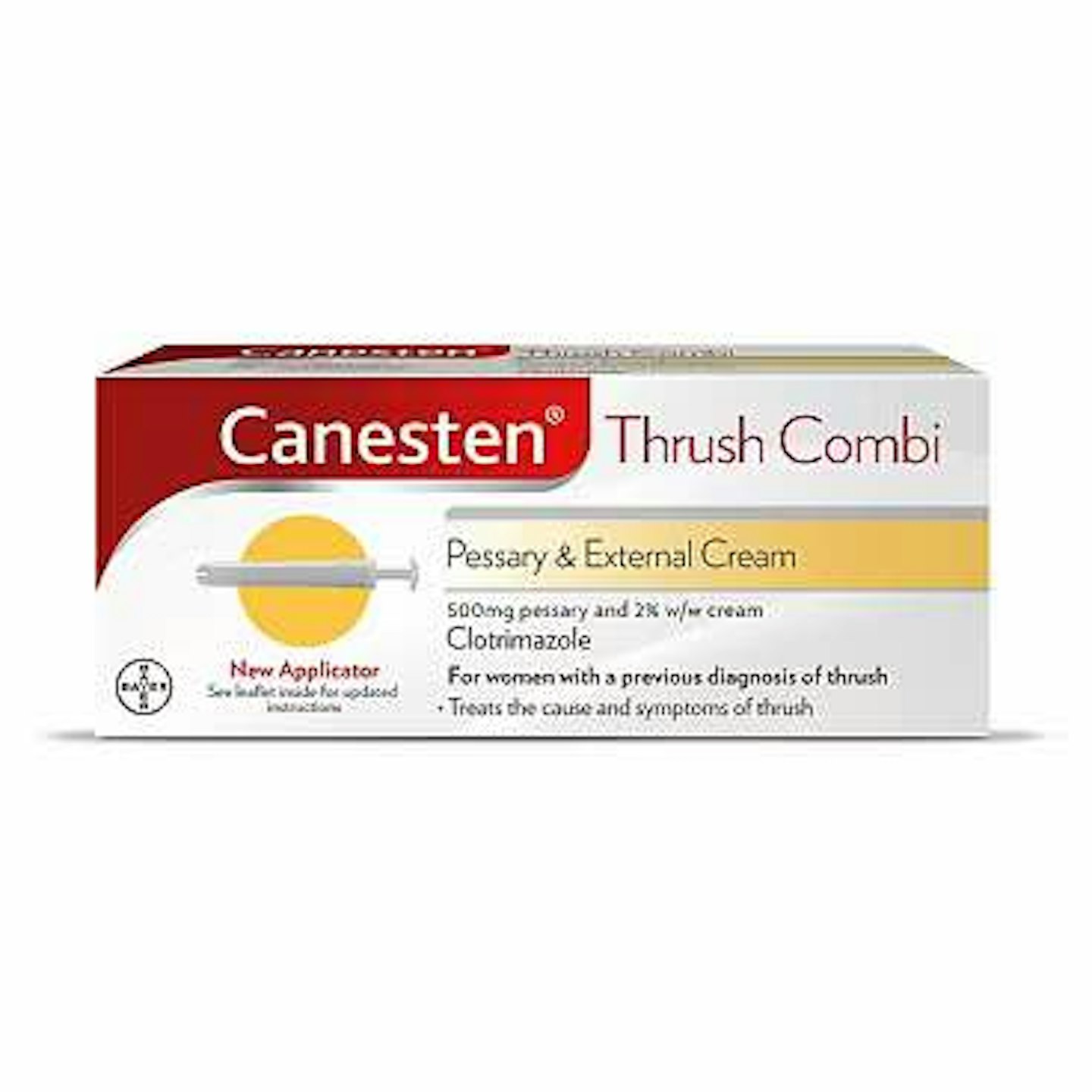 Boots
Boots www.boots.com
This packet contains one pessary and one tube of external cream (Clotrimazole 2%). It's for women with a diagnosis of thrush - so see your doctor or nurse for a swab first. You use the pessary overnight and then the cream for 7 days.
My review: This stopped my thrush in its tracks, but on my doctor's advice I used the cream for 2 weeks, not 7 days. I also made my partner use the cream for 2 weeks so he didn't re-infect me.
The pessary is comfortable enough to insert, like a tampon with an applicator. I did it right before bed and I found it easier to lie down and do it.
The only thing is that it dissolves overnight but the next day you will have chalky residue, so I'd recommend wearing a pantyliner that day. The symptoms went quickly but I kept using the cream to make sure they didn't come back. Now that it's finally gone, I can't believe I put up with it for so long! Go to your doctor, ladies, don't suffer in silence!
Low libido
All of these issues can, unsurprisingly, put a dampener on your sex drive. “Sex can feel uncomfortable due to dryness and you may notice a change in your libido, because your ovaries also produce testosterone, and so levels will decrease with the menopause,” Dr Mitra says.
Again, it’s something to talk about, ideally with both your doctor and your partner. Boost your intake of chromium, zinc, magnesium and selenium as deficiencies have been shown to affect libido. Eat plenty of dark green leaves, nuts and beans.
I recently tested libido supplements for women to see if they really do work. The Hanx Libido Lift came out top.
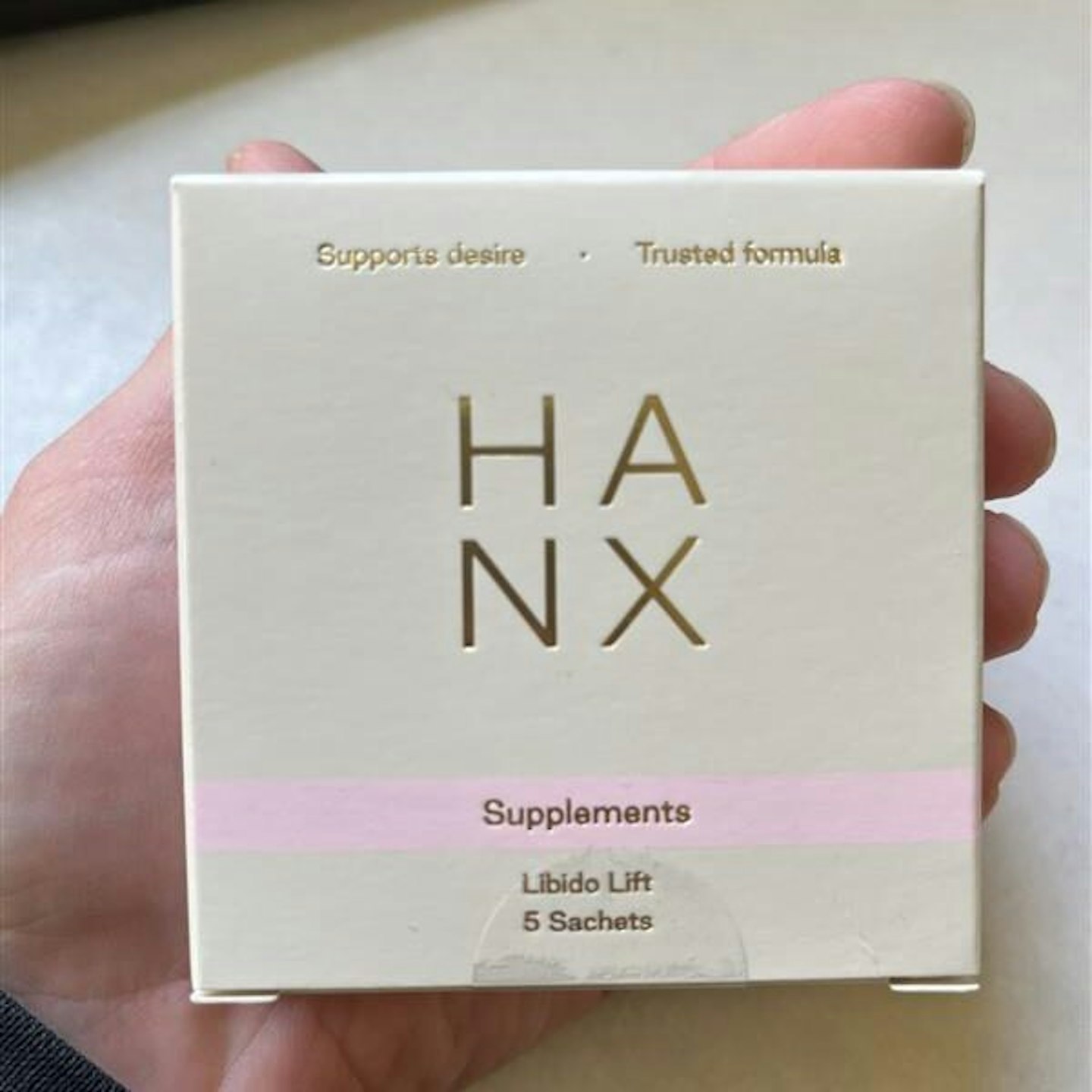 Yours
Yours www.boots.com
HANX Libido Lift has been specially formulated for women, and is suitable for vegans. You dissolve one sachet in water and either consume 1-2 sachets per day, or drink 1-2 hours before having sex.
It contains vitamin B6, Maca Root, Tribulus Terrestris (a herbal plant thought to increase sex drive), and L-Arginine - an amino acid which helps blood vessels to open.
Our review: It works! I don't really know what else to say except thank you, and it works! I've got a small baby and I'm perimenopausal. I took Hanx one evening at about 8pm, assuming nothing would happen. However, I was pleasantly surprised.
There's no immediate rush, nothing happens, although I did get very flushed (that might be perimenopause or my blood vessels opening up, who knows?).
It's hard to explain, but I just felt really open to being touched - something I haven't felt in so long. I don't know if it's because we both knew we were going to have sex, but it just felt really intimate and relaxed in a way that it hasn't since probably the time our baby was conceived.
I've tried taking Hanx daily for 5 days, which may not be long enough to see if it really has a lasting effect, but I think I'll revert back to taking it on the days we want to be intimate. It's easy to take, doesn't taste great but I down it in one, and I'd definitely keep using it.
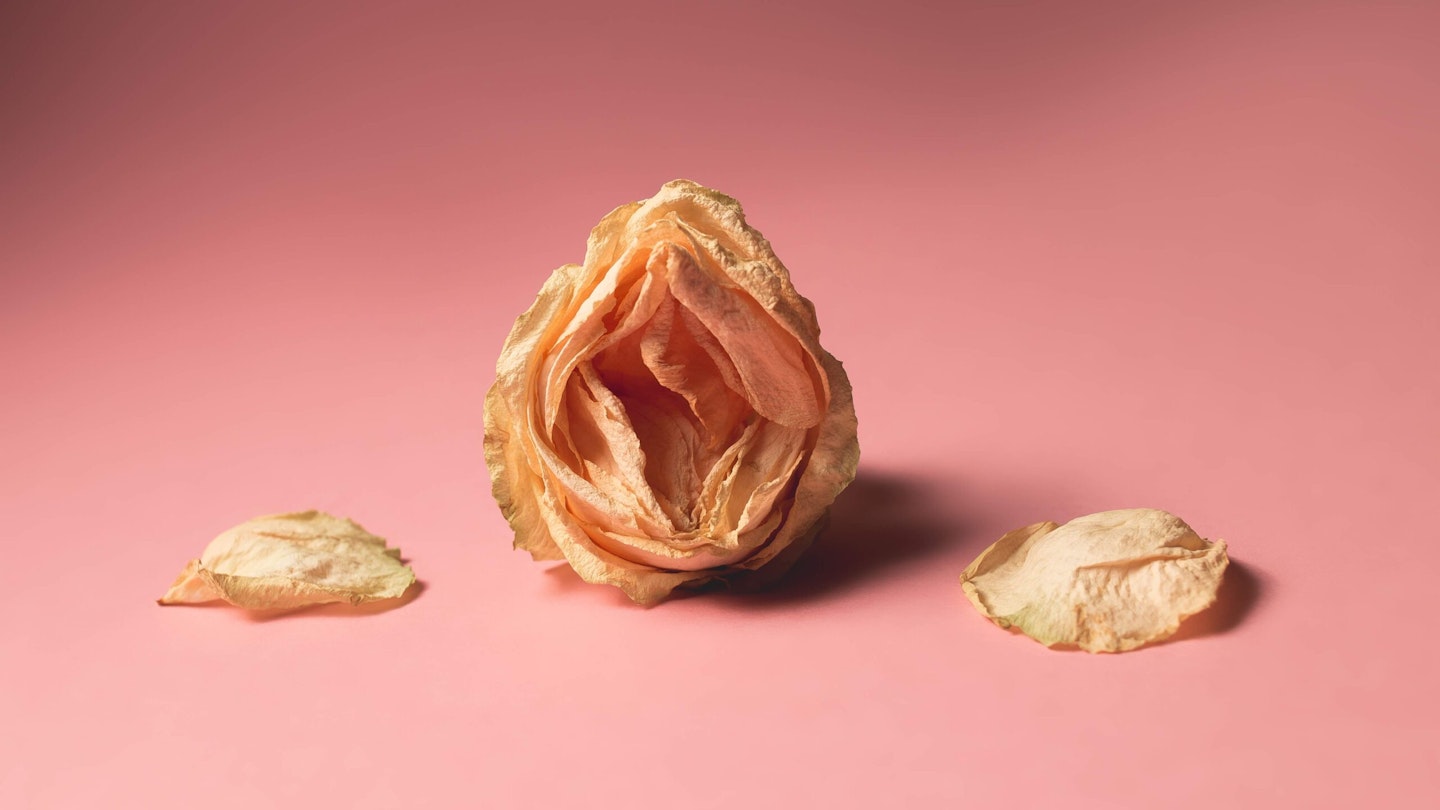
Cystitis
Feel like you need to pee constantly, or experience a burning feeling? This may be cystitis, which means your bladder is inflamed, possibly as the result of an infection. there are remedies available at the chemist, but if these don’t help, visit the doctor, as antibiotics may be necessary.
Cranberry juice is very good at relieving cystitis but make sure to buy unsweetened. You can also try these sachets from Canesten, which our tester found useful.
 Amazon
Amazon This is a 48 hour course of treatment to relieve the stinging and burning of cystitis. It's not a treatment for urine infections, so do get checked with a GP or pharmacist if your symptoms are different or you're unsure.
Our review: I've lost count of the number of times I got cystitis before I went onto HRT. I think because I was SO dry, I just kept getting inflamed and sore, and that inflammation spread to the bladder. These sachets are great. Down them in one, though! You just drink them, along with lots of water on a regular basis, and the pain eases.
Changes down below you should get checked
Always talk to a Pharmacist or make an appointment with your GP if you’re concerned – we are lucky enough to be blessed with the NHS in this country so do make use of it.
“If you have symptoms of abnormal discharge, abnormal bleeding, pain, lumps/ bumps/irritation, please go and see your doctor,” Dr Mitra tells us. “Most of the time it’s nothing sinister, but gynaecological problems can often go undiagnosed and untreated for longer than they need to because we tend to ‘keep calm and carry on’. I also want to stress that bleeding after the menopause (more than one year after your last period) always requires investigation.”
Also keep up with your smear tests up to the age of 65. These are crucial for spotting any early warning signs that something might be wrong.
Everyday care
With a wealth of intimate washes and other products available, what exactly should you be doing to keep yourself clean and healthy? “You can just use water,” Dr Mitra says. “If you have irritation, it’s not due to poor hygiene – see a doctor.”
However, if you’d prefer using a soap of some kind (and I know I do), opt for an unfragranced, gentle option rather than an all-over shower gel or similar. I’ve been using the Balance Activ Daily Intimate foam wash. I find it gently cleanses but doesn’t irritate – even when my thrush was at its worst.
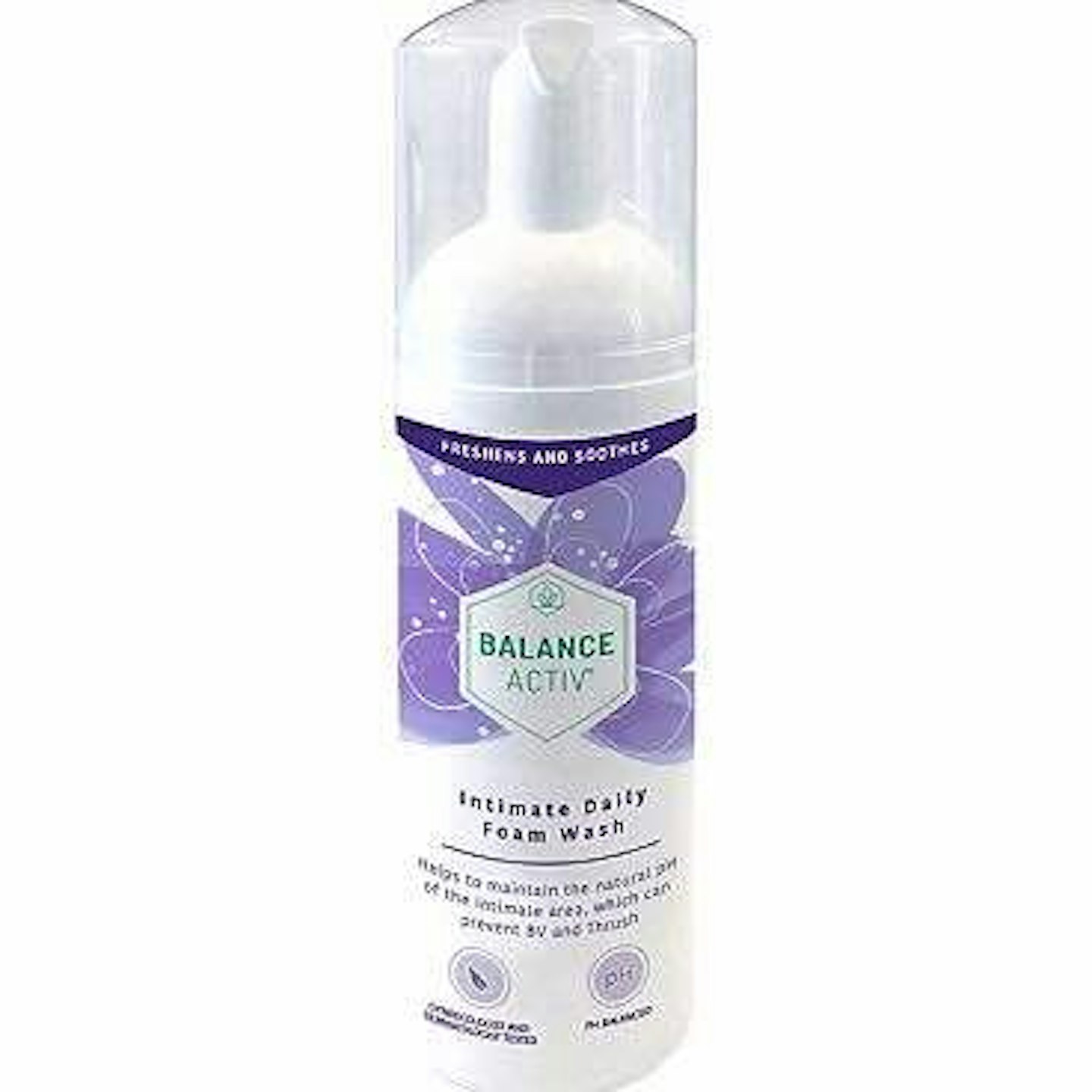 Boots
Boots www.boots.com
A daily wash that maintains the natural PH balance, helping to prevent thrush and BV. Suitable for use during menopause and during your period.
My review: I love this wash! Yes, I know water should suffice, but I do like to feel I've washed, and this is so gentle that it didn't even irritate me when my thrush was at its worst. You just use 2 pumps a time. It lathers well, has no fragrance, and washes off easily. I will keep buying it and keep using it for intimate washing, and using my fragranced soap or shower gels for the rest of the body.
Worried about revealing your health concern in front of a queue of people?
Most pharmacies have a private room available, so you can always ask to pop into there for a franker discussion. And don’t forget that whatever the issue, they’ll have seen it a hundred times before. Equally, when booking a GP appointment, you don’t have to tell the receptionist what it’s for if you don't want to, although do bear in mind that they might be able to signpost you to better help if they are aware of the general issue.
Dr Anita Mitra is an NHS Gynaecologist and author of The Gynae Geek: Your No-Nonsense Guide to Down-There Healthcare.
Becky Fuller is a senior digital writer for Yours.co.uk. She is also a fully qualified personal trainer and strength coach, specialising in fitness and wellbeing for over 50s. Prior to joining Yours, Becky was a fitness writer for Saga, and a freelance entertainment and theatre journalist. Becky is passionate about helping people to move well and discover the many benefits of strength training.


